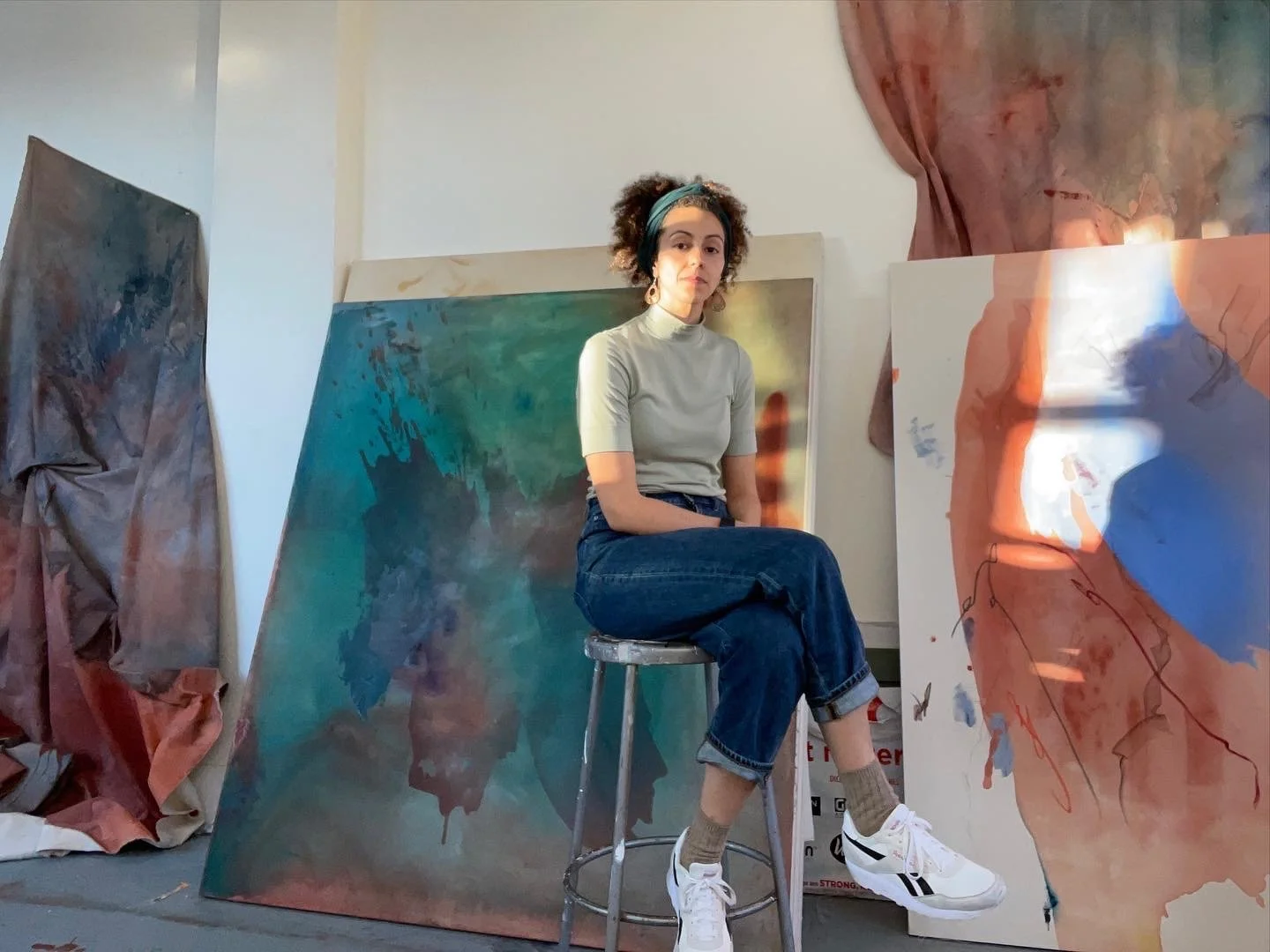“Dooryard Gardens, Pt. 2: Party in the Kitchen” by Vessna Scheff
Vessna Scheff is a multidisciplinary artist raised in the San Francisco Bay area, now based in Pawtucket, RI. She creates paintings, portraits, performances, sounds, and installations that use watercolors, movement, vocals, and projections as mediums of inquiry. Grounded in watercolors, her work reclaims a medium often described as “difficult” or “sketch” for its uncontrollable qualities, and rather conceptualizes the freedom of watercolors as an expression of Black liberation. She holds an M.F.A. in painting from the Rhode Island School of Design and a B.A. in Sociology from San Francisco State University.
BMAC spoke with Scheff about “Dooryard Gardens, Pt. 2: Party in the Kitchen,” on view through February 12, 2023, as part of the exhibit We Feel Our Way Through When We Don’t Know.
“Dooryard Gardens, Pt. 2: Party in the Kitchen” (2022)
mixed media installation
6 x 10 feet
Dear Reader/Viewer,
inside our cocoons
a transformation is brewing
similar to the scents of black beans and yellow rice
of chapped lips on brass horns
buzzing with the pain of the day
and celebrating all the more
remembering that we have already emerged countless times as moths and butterflies
and this day is just like the rest
with a reason to cry and a reason to dance
none the less.
Through performance, watercolors, poetry, and installations, I tenderly hold the reverberation and resonance of radical histories created and sustained by the Black women in my family. This installation takes its name from a concept I learned about in a book titled In the Shadow of Slavery: Africa’s Botanical Legacy in the Atlantic World, which details the intention behind the selection of labor from various geological regions in Africa based on expertise in climate-specific cultivation. In this book, the term “dooryard garden” is used to refer to subsistence plots outside of the homes of the enslaved where food was grown for consumption (not cash crop production). The enslaved were somewhat successful (while met with resistance) in advocating for time to tend to their subsistence plots, which meant less time tending to cash crops. These dooryard gardens provided a material site of resistance and advocacy within the omnipresent institution of enslavement.
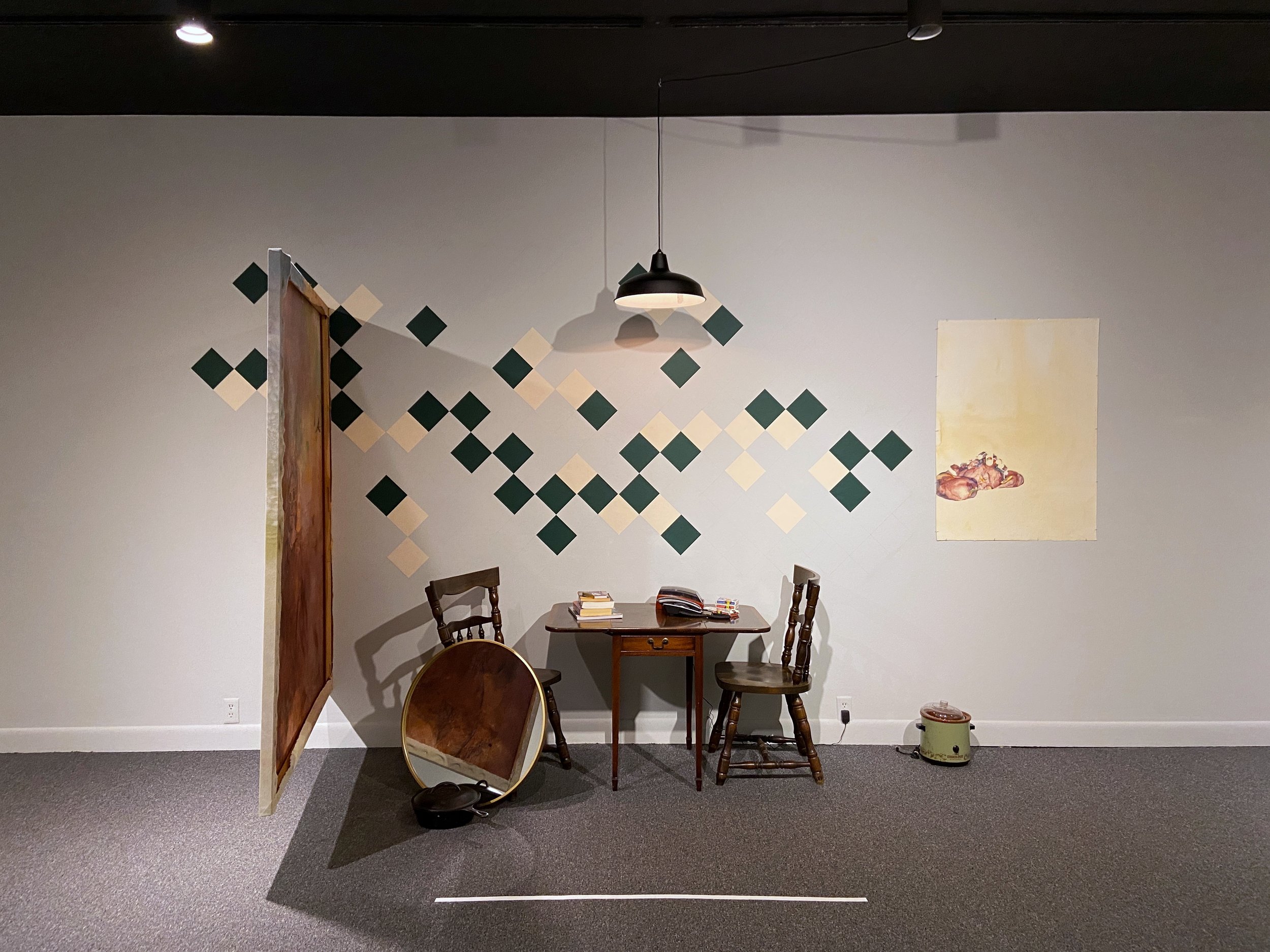
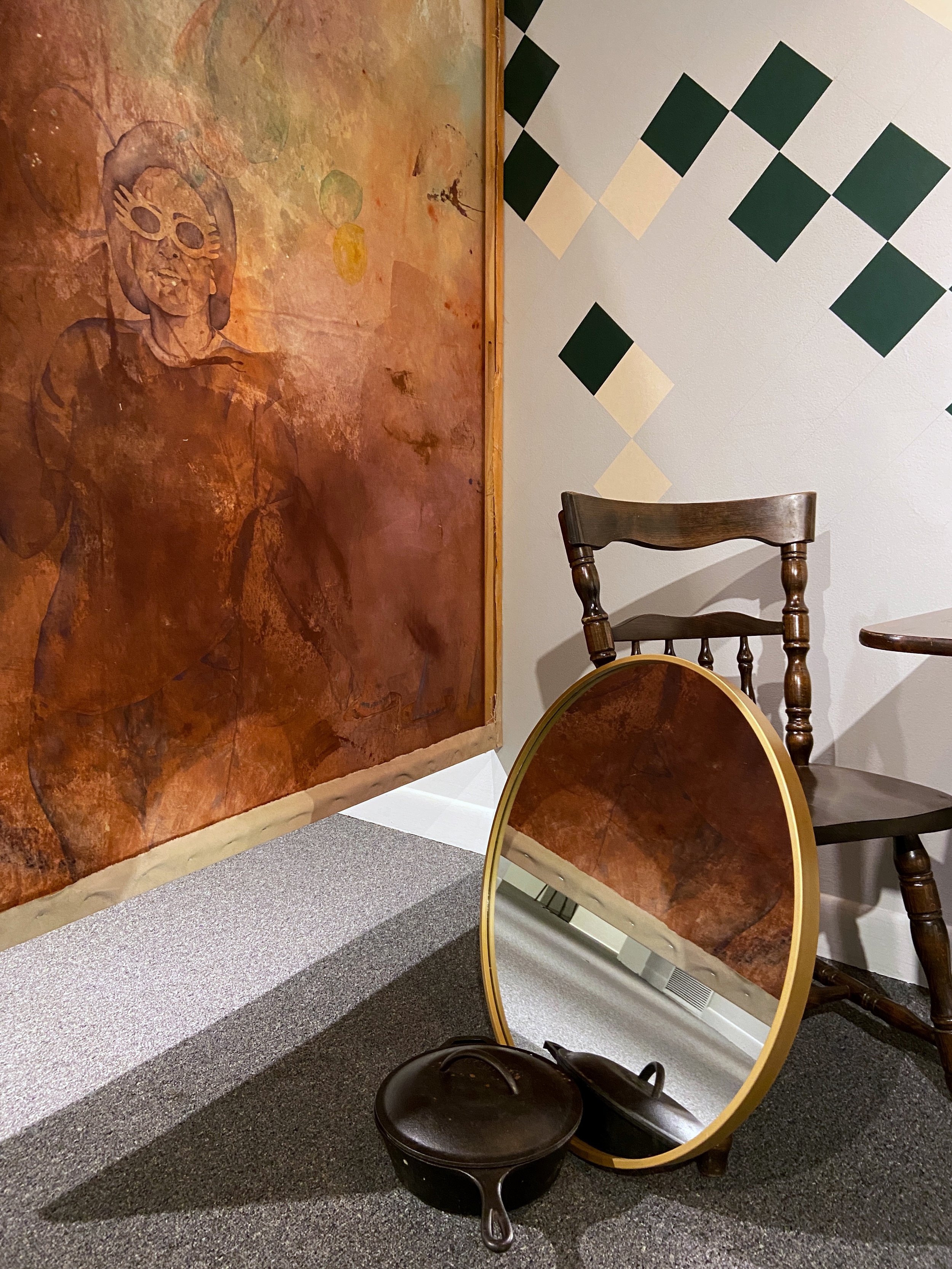
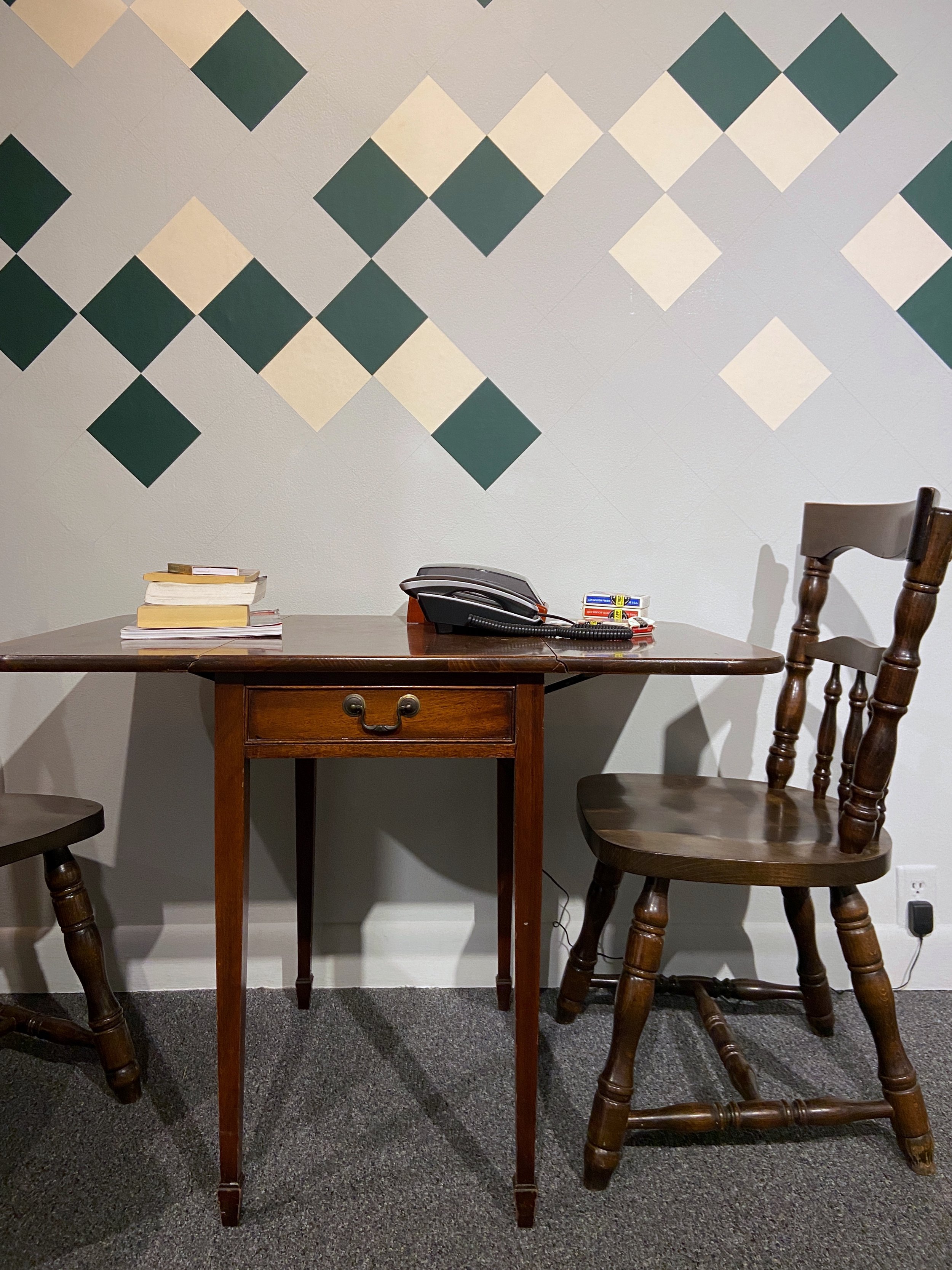
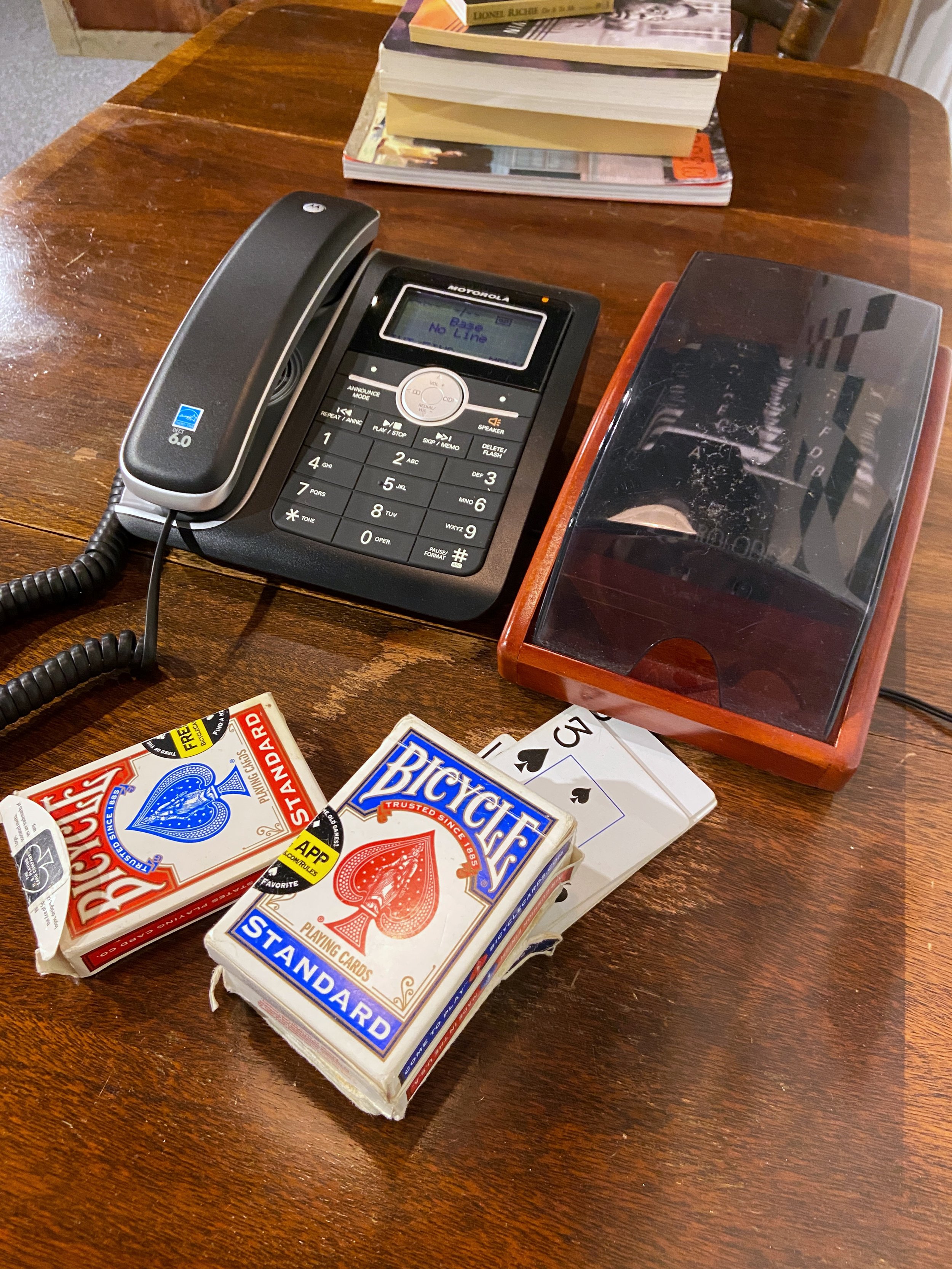
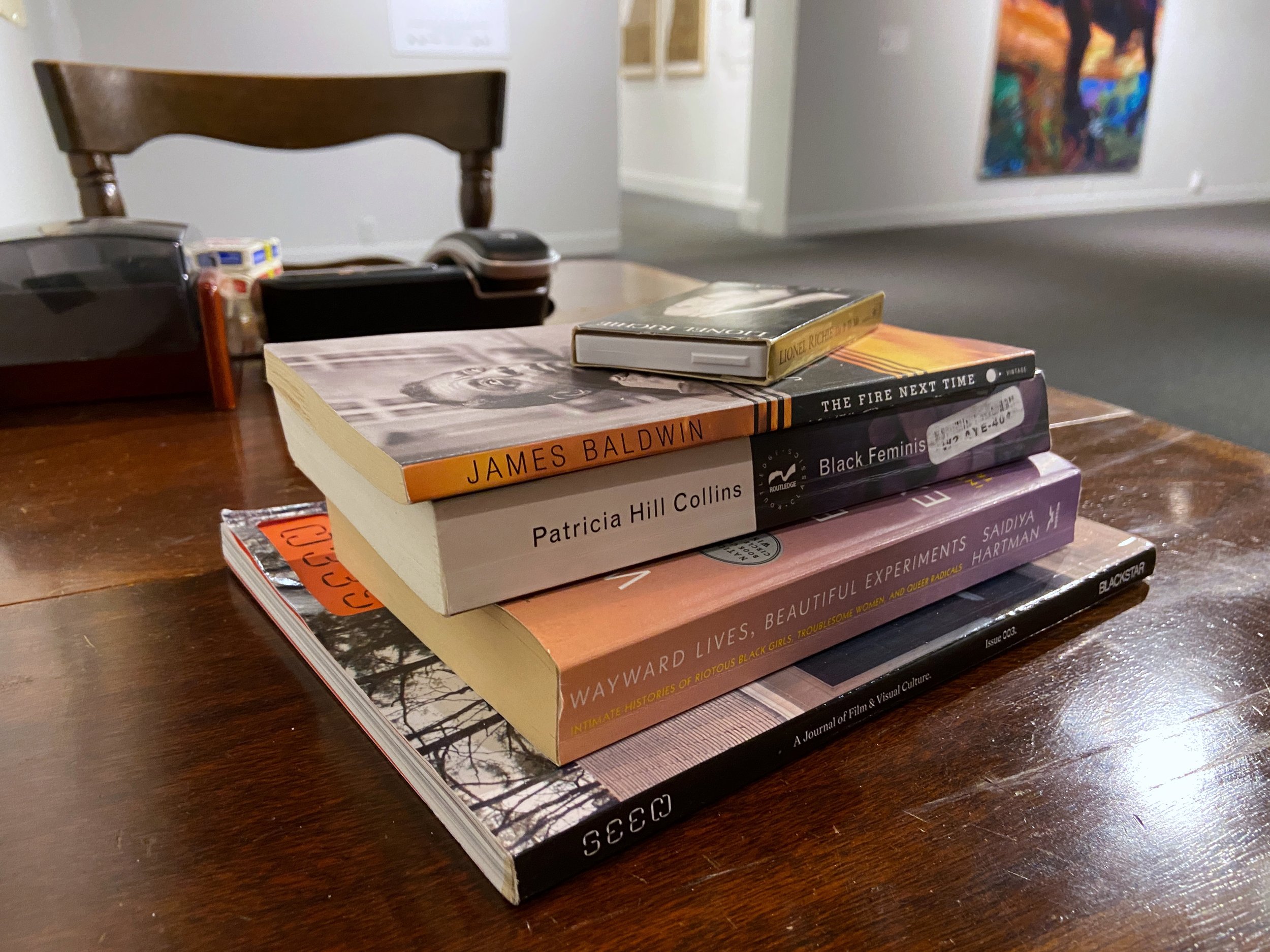
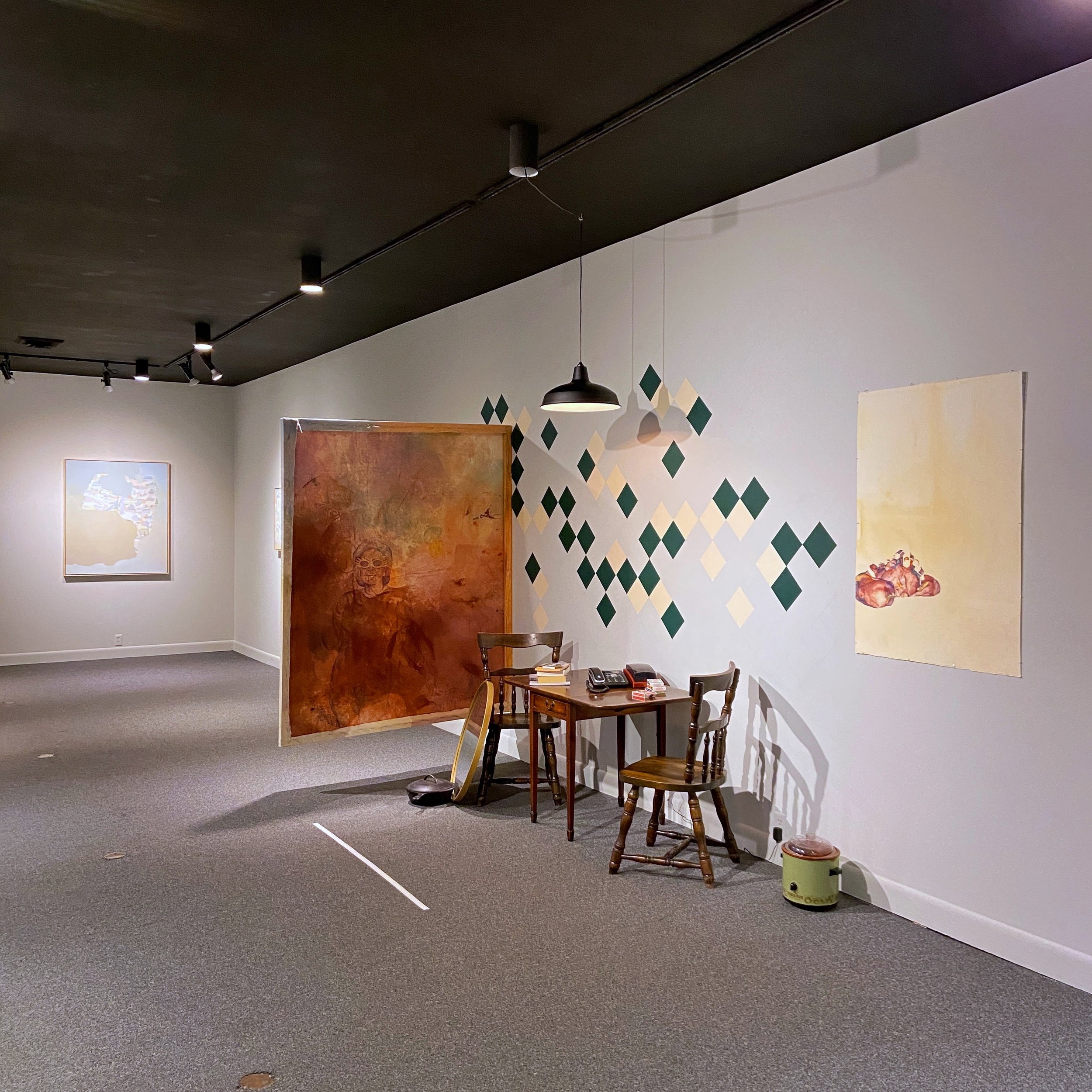
In my installations, I aim to create contemporary expressions of dooryard gardens. I am curious about the objects and architecture of spaces that provide liberation and subsistence within oppressive circumstances. For me, these spaces that have sustained my life (and often the ability for society to function at large) have always been matriarchal. This work honors my Aunt Cheryl, who was known to throw impressive game nights filled with laughter, drinks, dialogue, music, and pounce (a loud multi-person card game). The sound of cards being smacked into alignment on the table while being shuffled would fill the room as kids ran around playing, making sure to stay out the way of the pounce table. Down the hall, my Mom would be sleeping (or “closing her eyes” as she would say) with curlers in, surrounded by the love filling this interior space, enough so that deep rest becomes possible amidst the sounds and scents from the kitchen. This is the ever-soothing resonance of being surrounded by love.
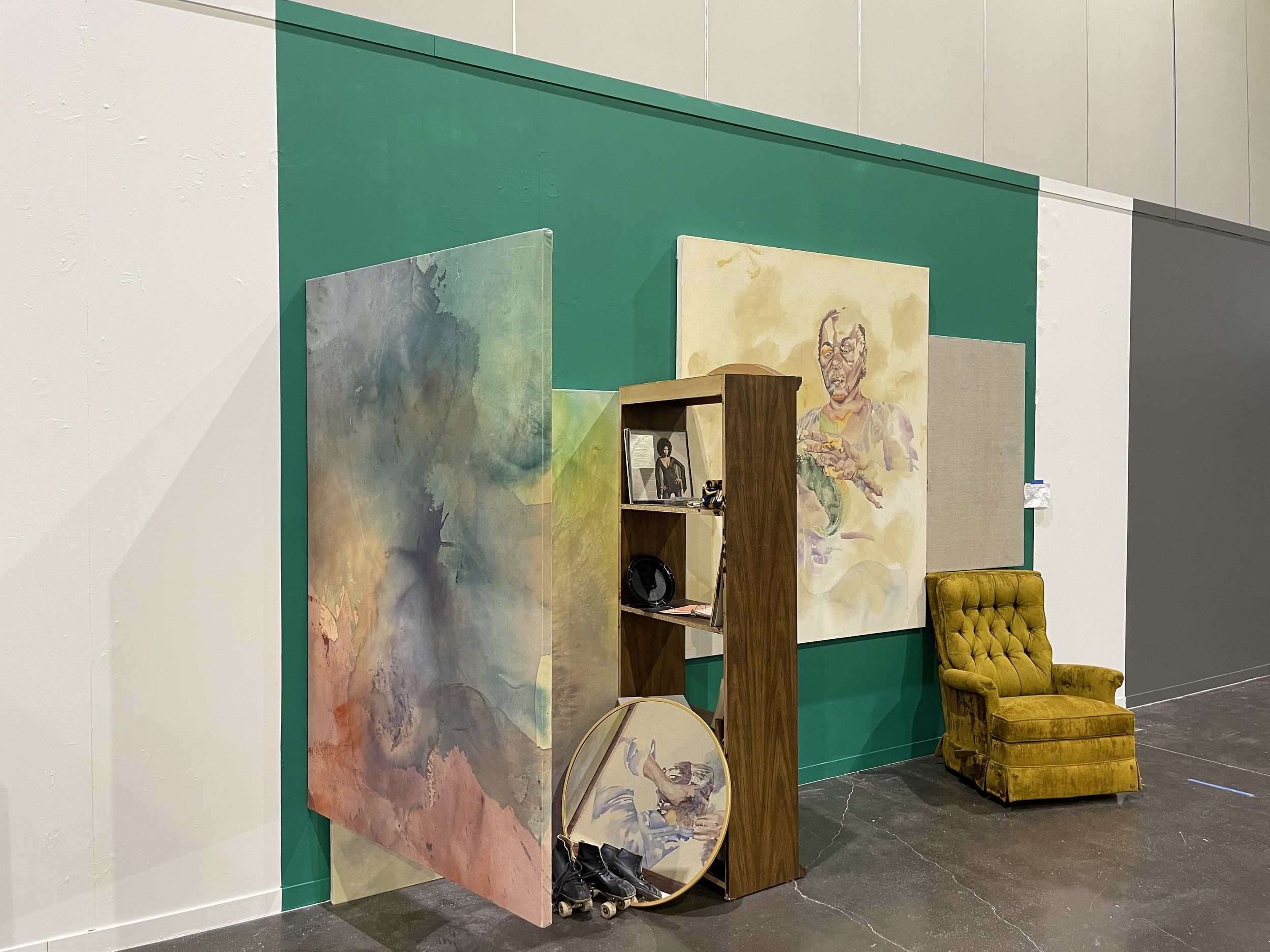
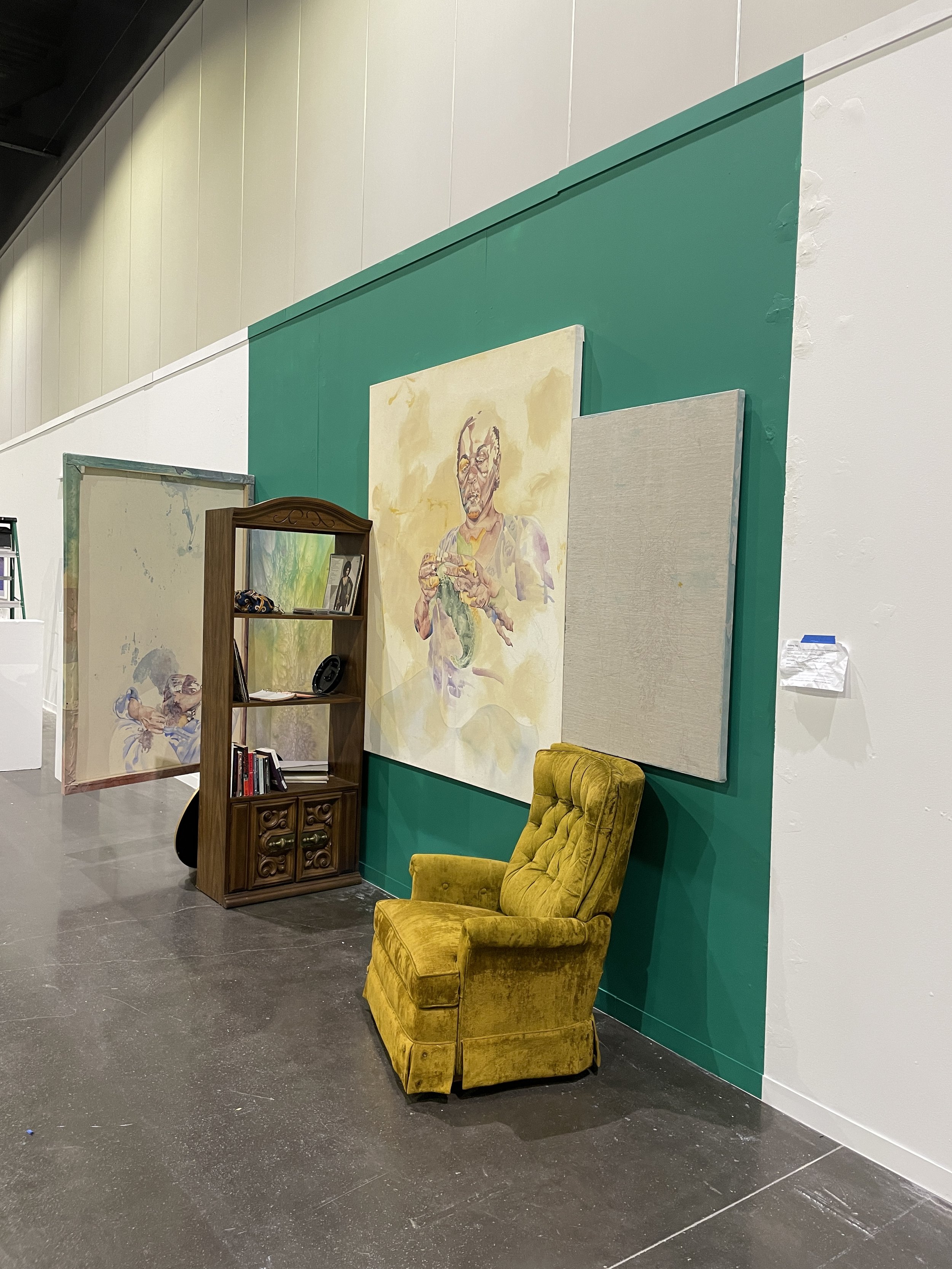
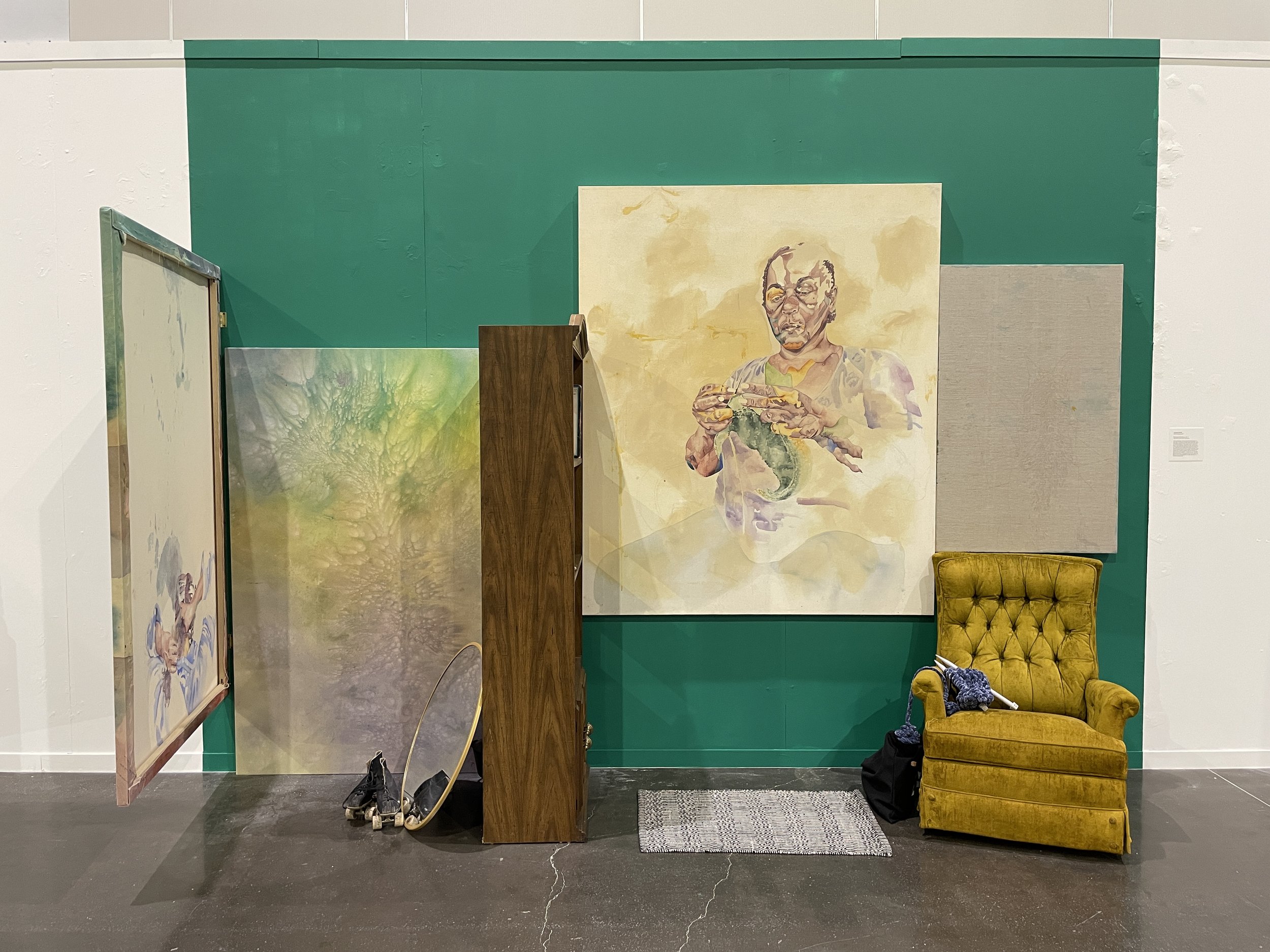
This is the second installation I have created of this kind. The first took place in the setting of the “living room” as part of the Rhode Island School of Design M.F.A. Graduate show. In that installation, the warmth of fleece robes and hot combs filled the senses, while books by Assata Shakur and Maya Angelou, records spinning on repeat, and a mirror on the floor in front of which I braided my hair, near my Aunt Lori knitting in her chair, composed the scene. These domestic spaces of gathering where we let our hair down have been critical to my nourishment and ability to move through the world. They are spaces where we learn to love ourselves no matter what, and most importantly, we learn to cultivate those spaces for ourselves and others, over, and over, and over again.
With love,
Vessna
